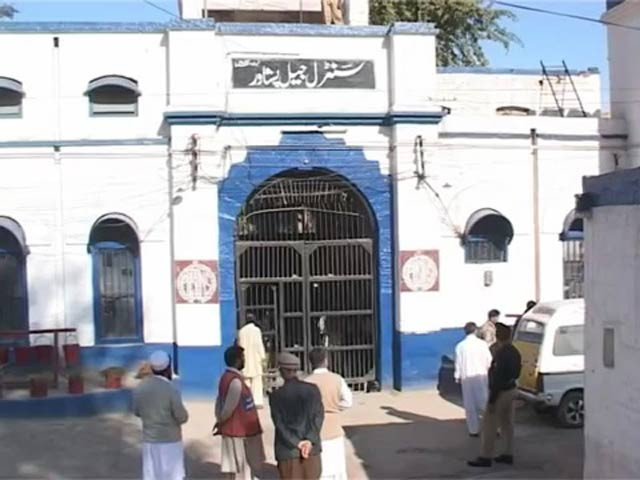For female prisoners, misery and disease in K-P jails
With no awareness among lawmakers about life in prison, incarcerated women continue to live in appalling conditions

Centrail Jail, Peshawar. PHOTO: ABDUR RAZZAQ
On her visit to Peshawar Central Jail after the local government elections, local councillor Salma Saeed says she was surprised to find out the miserable conditions women inmates were kept in. “The main hall was crowded with only 33 beds for 110 inmates which included five foreigners. Around 20 children were also living in the same facility with their imprisoned mothers,” she narrates scenes from her visit.
With no basic health unit available, Saeed says skin diseases, HIV, hepatitis, tuberculosis and other viral infections are common among the inmates. Absence of gynaecologists and birth attendants, she adds, makes pregnancy a more difficult period for the prisoners.

The local councillor says balanced diet, proper clothes and blankets are not provided to the incarcerated women while daily-use commodities such as toothpaste, soaps and towels are also not supplied to them. Their education as well as their children’s is also at risk as no teacher is available inside the jail premises. The one school that exited, Saeed says, was shut down in January 2014 due to increasing threats of militant attack on the jail. The government primary school for girls had 200 students at the time of its closure.

Staring at women for over 14 seconds illegal, Indian official says
Stressing the urgency of the matter, Saeed calls on the provincial government and non-governmental organizations to build a dispensary and a library for the inmates. “I have discussed this issue with district Nazim and other officials but we cannot take any action as the prison department does not fall under our jurisdiction,” she says, stating it is the responsibility of K-P government to ensure humane treatment of the inmates and their children.
Astonishingly, some women parliamentarians of K-P assembly were oblivious of the challenges faced by inmates of the Peshawar jail when approached by The Express Tribune. Meraj Hamayun Khan, MPA from Qaumi Watan Party and president of K-P Women Parliamentary Caucus, says she was unaware of the appalling conditions women inmates were living in and that she will visit the facility soon.

Uzma Khan, general secretary of the caucus, points out that inmates not just in Peshawar jail but in other districts as well face similar situation. In reference to inmates of a jail in Timergara, which is the headquarters of Lower Dir district, Khan says she once raised the issue in the assembly but received no support or even attention from fellow parliamentarians. The general secretary says the serious issue it yet to be resolved.
Acknowledging this is a violation of fundamental rights, Sikandar Ali Khan - assistant director of K-P government’s human rights section - says they recently visited Chitral and Timergara prisons and have collected data for problems faced by both men and women.

American woman in jail for 'insulting UAE'
In Chitral, according to Sikandar, a small number of inmates are women while prisoners in Timergara jail admittedly live in miserable conditions. “The cell designated for women is occupied by 34 prisoners against the capacity of only 10 people. There is a dire need to construct more rooms for women inmates in the jail,” he admits.
Lamenting the absence of a doctor to guide and treat women prisoners, Sikandar shares stomach and kidney diseases are common among inmates of Timergara due to the supply of impure and unhygienic drinking water.

However, Sikandar says they have no information about the situation at Peshawar Central Jail. Expressing shock over the inhuman living conditions of women prisoners in the provincial capital, the official says such treatment is not permissible according to basic human rights and promised a team from his department will visit the facility and submit recommendations for necessary corrective measures to the concerned department.

“According to Article 25-A of our constitution, the state is bound to provide basic education to the children; I wonder why children are deprived of their right in the Peshawar Central Jail,” Sikandar says, adding that it is also important to investigate why school-going children are living with their imprisoned mothers in the first place.
The state is required under the law to take necessary steps to end this injustice, he emphasises.
Abdur Razzaq is a Peshawar-based radio and print journalist. He tweets @TheAbdurRazzaq













COMMENTS
Comments are moderated and generally will be posted if they are on-topic and not abusive.
For more information, please see our Comments FAQ